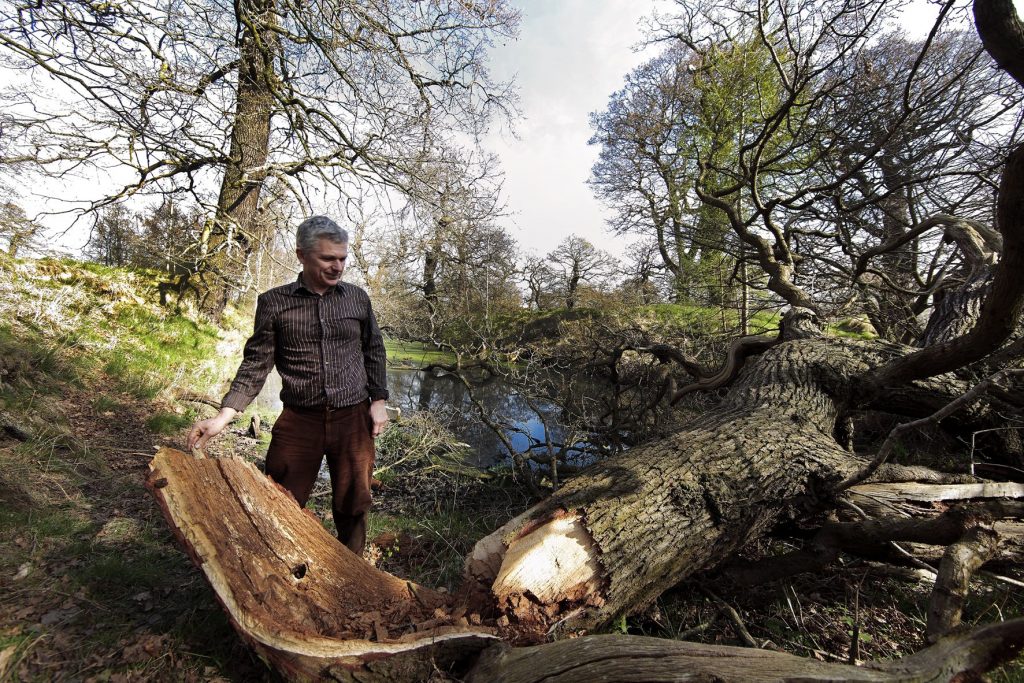The After the Storm journey began on 3 January 2012 when Cyclone Andrea (described as a once in a lifetime event) swept across Scotland with winds reaching 100mph, blowing down thousands of trees in its wake. Some forests were left flattened and the Royal Botanic Garden Edinburgh lost over 40 specimen trees. The vocabulary that was used to describe the aftermath of Andrea was taken directly from the language of war and few people anything positive to say about this traumatic event.
Then in 2014, at the preview of the annual Scottish Furniture Makers Association (SFMA) exhibition at the RBGE a conversation began on how the windblown trees from the storm might be used to make pieces for an exhibition which highlighted the beauty of Scottish-grown timber and the talent and craftsmanship among our Scottish furniture makers and designers. As plans for a joint RBGE/SFMA exhibition developed the focus shifted to other positive outcomes emerging from the great storm. Conversations with ecologists revealed how storms are essential for rejuvenating woodlands, creating gaps for regeneration and encouraging greater diversity of species and structure, building resilience and ultimately a healthier ecosystem.
With new partners the Forestry Commission and Edinburgh College of Art we began to explore ways of celebrating the role of storms which has led us, perhaps inevitably, to consider parallels with the human condition. People respond to traumatic changes in their life in the same was as woods: the pattern of devastation, recovery, regeneration and resilience is a familiar one. Our explorations have also considered the role diversity plays in post-traumatic recovery in both forests and people.
As these ideas evolved the partners, which now also included the Scottish Poetry Library, began to seek ways in which they could engage with artists and audiences to create positive and inspirational outcomes. The original proposal of an exhibition of furniture from storm-salvaged timbers has provided a starting point for creative ideas for community engagement which continue to grow and develop through the outreach of all the partners involved. One tangible outcome is a publication, providing a narrative on which to hang the project and documentation of explorations around the theme.
If you are interested in contributing in any way to this Project as it develops over the next 18 months please contact me at i.edwards@rbge.org.uk or follow me on twitter @idedwards This is a good opportunity to get involved in something with a strong, inspirational message relevant to our time.

